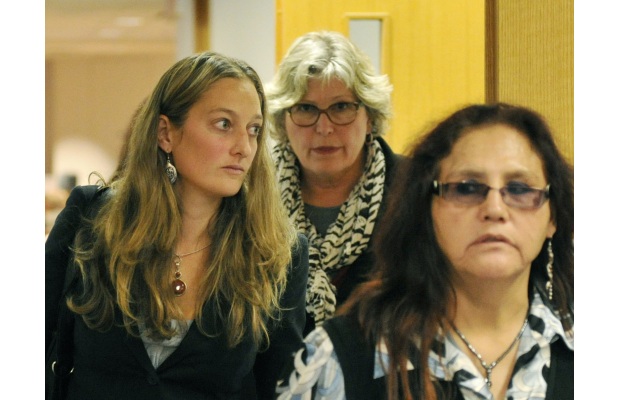Street-level sex-trade workers told researchers that Vancouver Police coerced them into sexual favours in exchange for letting them ply their trade.

That was among the findings reported to the Missing Women Commission of Inquiry Tuesday by University of B.C. public health researcher Kate Shannon, called as an expert witness on prostitution by inquiry staff.
“One of the problems faced by street-level sex-trade workers was that Vancouver Police Department members would force them to engage in sexual services in exchange for not arresting them or fining them,” said Shannon.
Shannon, who has conducted several major peer-reviewed studies on prostitution, said that most sex-trade workers said they were treated “with apathy, indifference or outright harassment” by the VPD.
And a consequence of “prior police harassment,” said Shannon, was that the sex trade worker would be three times more likely to encounter violence while on the job and twice as likely to suffer rape.
Having difficult dealings with police appears to cause sex trade workers to “rush transactions – to jump in a car more quickly without checking a bad date sheet, in order to avoid police,” said Shannon.
Shannon said her findings are based on her own substantive research and are in line with “research globally.”
Women also migrated to “darker, more secluded areas” with “dates” to avoid police, a strategy which only served to put them in more danger of violence, Shannon told Jason Gratl, an inquiry lawyer for Downtown Eastside groups.
- Train goes up in flames while rolling through London, Ont. Here’s what we know
- Wrong remains sent to ‘exhausted’ Canadian family after death on Cuba vacation
- Liberals having ‘very good’ budget talks with NDP, says Freeland
- Budget 2024 failed to spark ‘political reboot’ for Liberals, polling suggests
And a prostitute who is the victim of sexual or physical violence is highly unlikely to report the crime to police if she has been previously victimized by an officer, Shannon said.
Shannon headed a project that interviewed 255 sex trade workers in the DTES from 2006 to 2008, including surveys and in-depth interviews with 237 women.
The project looked at a wide range of experiences and factors affecting the women’s lives, such as their precarious housing status, with 87 per cent reporting “absolute homelessness” at least once in their lives.
Although only four per cent of B.C.’s population has First Nations ancestry, 48 per cent, or almost half, of sex-trade workers identified as aboriginal.
One in five was infected with HIV and 57 per cent had experienced violence at least once during the 19-month study period, including one in four who had suffered rape and 30 per cent subjected to “client-perpetrated violence.”
Women were thrown from cars and assaulted in secluded industrial sites, where they had been forced to work after harassment by police or neighbours.
Shannon told inquiry lawyer Darrell Roberts that the women were interviewed in strict confidentiality with their anonymity guaranteed, to ensure a high response level. Researchers talked to the women as much as possible in a “women-only space” which had an exit to the alley to avoid retaliation.
The women feared “police, pimps, dealers, strangers and partners,” she said.
Shannon admitted to Vancouver Police Department lawyer Tim Dickson that researchers did not ask which police officers from which agency had assaulted them, if they made that allegation.
Asked if researchers had verified or double-checked answers, Shannon said they had not.
“Violence is generally highly under-reported as an event,” said Shannon.
“We wouldn’t be asking or telling someone we don’t trust their answers — we have no reason to do that.”
Shannon agreed with Dickson that among the most dangerous activities sex trade workers ever engage in is “getting into a car with a stranger.”
Dickson quoted a respondent as saying “Once Buddy’s got you in the car, you’re f—-.” Shannon said that characterization of street sex work was apt.
The inquiry is probing why it took Vancouver police and Coquitlam RCMP so long to arrest convicted serial killer Robert Pickton, looking in particular at the years between 1997 and 2002 when Pickton was particularly active.
Commissioner Wally Oppal, a former Attorney General, also is considering why charges against Pickton were stayed after a 1997 violent altercation with a sex trade worker.
Oppal has pledged to hand in his final report to B.C. government by the end of 2011 but that deadline appears likely to be pushed back, after only one week of formal hearings.




Comments